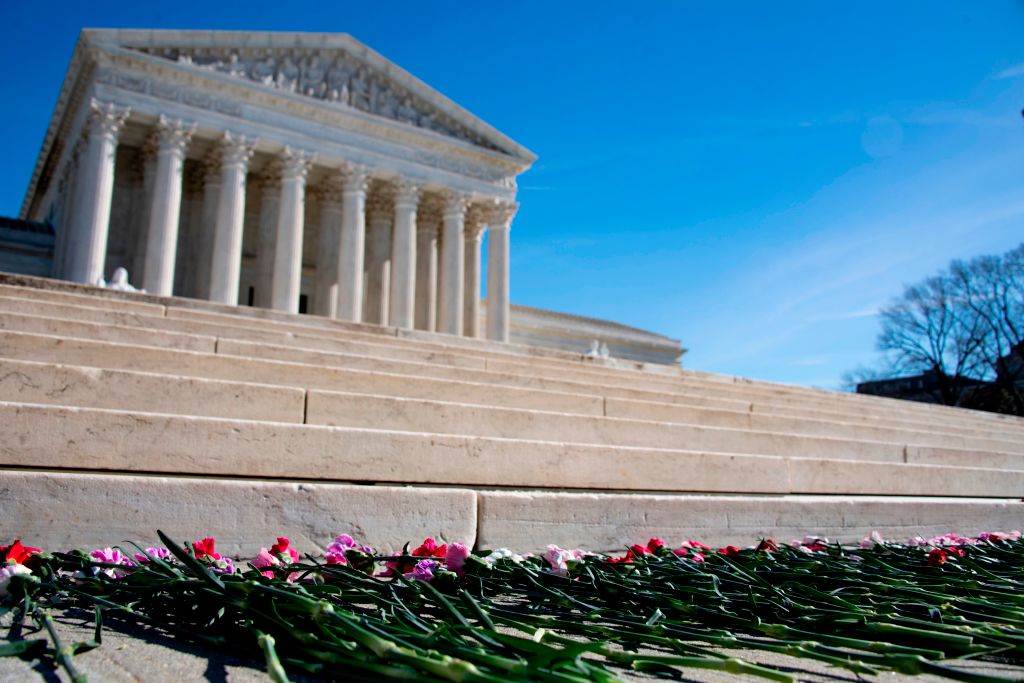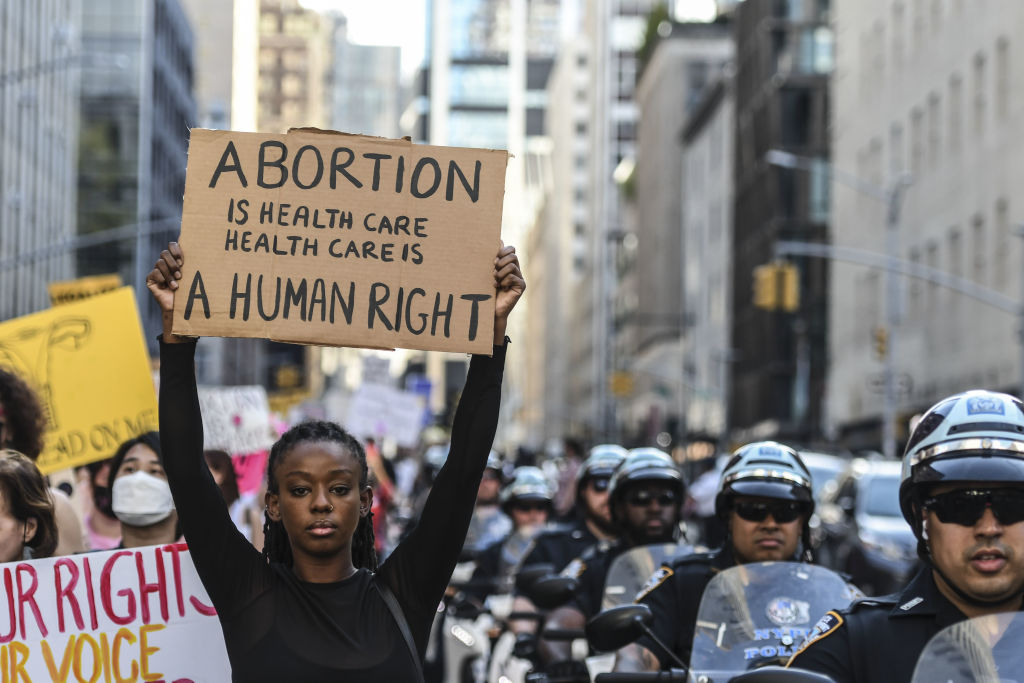Roe v Wade Anniversary: Opposing Abortion Isn't Christian, Evangelist Says
OP-ED: Opposing Abortion Is ‘Without Much Christian Heart’

Three thousand carnation flowers, left to represent the approximated 3,000 abortions that occur in the US every day, on the 46th anniversary of the Roe v Wade decision, lay in front of the US Supreme Court in Washington, D.C., on January 22, 2019. | Source: JIM WATSON / Getty
“You should have saved the baby.”
Those were the words I spoke to my mother one day in 1989 in the midst of a heated argument about the first major case to reach the Supreme Court challenging the 1973 ruling in Roe v. Wade. I was fervently arguing that the pro-choice position was immoral, unfaithful, and unchristian when my mother challenged, “What if the life of the mother is at stake?” Even then, I said, abortion was always wrong. That’s when she shared with me about a time in my memory when she went into the hospital pregnant and nearly died. What I didn’t know then was that the doctors had to take the baby to save her life.
“You should have saved the baby,” I said to the woman who had loved and raised me, who worked nights to put herself through college while raising three small children, who would give up anything to make sure we were provided for.
MORE: Black Women On Roe v. Wade: ‘Now’s The Time To Ensure Equity, Not Just Access’
That period of my life was one marked by the righteous zeal of being a young evangelical Christian. To be evangelical then—as so many still believe today—meant to be pro-life. More accurately, it meant being anti-abortion, regardless of the circumstances, regardless of the person sitting across from me.
In the years since, I have grown in my faith and deepened in my wisdom and understanding. I am still evangelical. But now, as we prepare to mark the 49th anniversary of Roe v. Wade, my response to my mother would be very very different.
Like millions of Americans, I was told that the Religious Right was born out of a great moral abhorrence to the Court’s ruling in Roe, that millions of Americans awoke from political apathy and rose up in opposition to abortion. But, as religious historian Randall Balmer demonstrated in his recent release, Bad Faith, this history has been whitewashed–literally. Immediately before and after the Roe decision, many of the nation’s prominent evangelical leaders and the largest white evangelical denomination, the Southern Baptist Convention, supported Roe.
In truth, it was another Supreme Court action that catalyzed massive evangelical organizing. Preserving segregation, not protecting life, was the genesis of the Religious Right movement.
For much of the 20th century white evangelicals largely existed within their own segregated communities – segregated by their distinct practice of Christianity, by culture, and, yes, by race. The Supreme Court’s 1954 decision in Brown v. Board of Education was the first major blow to segregation in public spaces. Over the next three decades, the effects of Brown rippled outward from schools to more and more public and private spaces. But it wasn’t until 1983 that white evangelicals felt the full impact.
In Bob Jones University v. United States, the Court upheld an IRS ruling that removed the conservative evangelical university’s tax-exempt status because the institution had disregarded the Civil Rights Act’s desegregation mandate. As I write about in my book Left, Right, and Christ, this was the catalyst for the rise of the Religious Right and the fuel in the engine of the Culture Wars, not Roe v. Wade. Only retroactively was opposition to abortion chosen as the rallying cry. You see, by the 1980s, segregation was no longer an acceptable issue around which to build a movement.
As a result, now Christianity in America is identified with an opposition to abortion. But it is an opposition without much Christian heart. And the casualties are women’s actual lives and their ability to exercise agency over their own bodies, futures and stories.
I have spent the past several years talking with diverse evangelical women about abortion. The ultimate power the Religious Right has exercised over evangelical women has been to silence us—to threaten expulsion from the evangelical community if we raise questions or share our personal stories that don’t fit the mold. So, I have gathered evangelical women and begun to listen to their experiences.
Three things have shocked me as I’ve listened: First, none of the evangelical women I have spoken to had ever had a public conversation (or any conversation) about abortion before. Second, evangelical women of color had never heard abortion spoken about as a political issue until they joined white evangelical churches. It is generally not approached as a political issue in Black and Latino evangelical churches, unless the church is part of a white evangelical denomination. Third, far more white evangelical women than I imagined carry their own secret abortion stories.
I couldn’t hear my mother when she first tried to share her abortion story with me. It took several decades for our relationship to heal from that wound. Scripture says we are known by our fruit. The fruit of evangelicalism in many women’s lives has been legislative and social domination, not love.
Evangelical Christians in America are standing at a defining moment for our faith. Will we continue to legislate white male domination? Or will we destroy the legislative lens that has ruled white evangelical faith. Will we love?
Lisa Sharon Harper is a speaker, writer, activist and artist, and is president and founder of FreedomRoad.us.
SEE ALSO:
The Fight For Abortion Rights: How Supreme Court Review Of Mississippi Case Threatens Roe v. Wade
Texas Abortion Ban Comes As Black Women Leaders Have Been Demanding Reproductive Justice
















